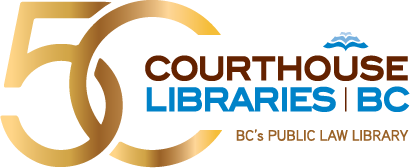June is National Indigenous History Month and is an opportunity to learn about the cultures, traditions, and experiences of First Nations, Inuit, and Metis communities. When we create the Law Books for Libraries list each year, we pay a special focus to book with Indigenous-specific legal content. We wanted to use this post to highlight some of these new titles; all these books are pre-approved for purchase using the LawMatters grant funding.
Life Against States of Emergency: Revitalizing Treaty Relations from Attawapiskat by Sarah Marie Wiebe
In the winter of 2012-2013, Attawapiskat chief Theresa Pence undertook a ceremonial fast to advocate for Canadian-Indigenous relations. The book’s author uses this event to examine the question of what treaty relationships look like today, arguing that treaties are matters of environmental justice. The book seeks to start dialogues about resource extraction, environmental justice, treaty relations, and decolonial futures.
Living in Indigenous Sovereignty by Elizabeth Carlson-Manathara with Gladys Rowe
This book brings together stories from Indigenous scholars, activists, and knowledge keepers, along with white settler Canadians engaged in solidarity work with Indigenous Peoples, to offer inspiration and guidance for settler Canadians who wish to live in good relationship with Indigenous Peoples. As the publisher’s website description states: “If Canadians truly want to achieve this goal...they will pursue a reorientation of their lives toward “living in Indigenous sovereignty” — living in an awareness that these are Indigenous lands, containing relationships, laws, protocols, stories, obligations and opportunities that have been understood and practised by Indigenous peoples since time immemorial.”
Unstable Properties: Aboriginal Title and the Claim of British Columbia by Patricia Burke Wood and David Rossiter
This book reframes the land claim process – investigating Indigenous claims to Crown land – by instead seeing it as a history of Crown attempts to solidify and justify their claim to Indigenous territory. The authors show how disparate views of the land – land as sovereignty, land as capital, etc – have been used to obtain citizenship for some and deny or undermine it for others.
Residential Schools and Reconciliations: Canada Confronts Its History by J.R. Miller
In this book, the author discusses how Canadian institutions and churches have responded to the legacy of residential schools, revealing a major obstacle in reconciliation work: the inability of many Canadians to overcome their overly positive understanding of Canada’s history.
We’ve also added two new Indigenous-focused titles to the Kids Law Books for Libraries list:
With Our Orange Hearts by Phyllis Webstad
In this book, author and founder of Orange Shirt Day Phyllis Webstad shows how sharing her story with the world has helped her process her feelings and encourages children to become comfortable with sharing their feelings too. For ages 3 to 6.
The Witness Book: Truth, Art, and Reconciliation by Carey Newman and Kirstie Hudson
The Witness Blanket is a large-scale work of art featuring a collection of hundreds of objects from residential schools, including everything from photos to hockey skates to braids of hair. Each part of the blanket comes with a story told by residential school survivors. This book, co-authored by the creator of the Witness Blanket Carey Newman, talks about the creation of the Witness Blanket and what it means. For ages 9-12.
The Law Books for Libraries List and the Kids Law Books for Libraries List can both be found on our website. All these titles are pre-approved for purchase; if there is a title you’d like to buy which isn’t on the list, please feel free to get in touch with us and we can talk about how it’s a good fit for your library! Megan and I can both be reached at lawmatters@courthouselibrary.ca.
This article is a LawMatters Blog post written for current awareness at the time of publishing. Please check the publication date as some information may have changed since then.
